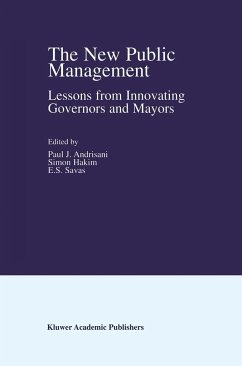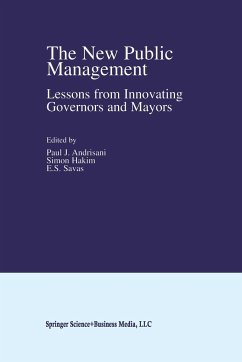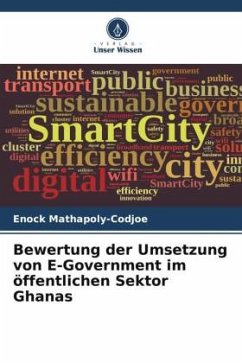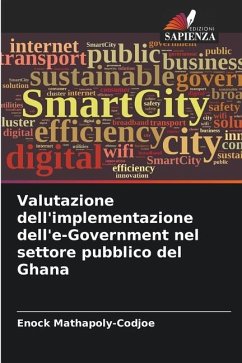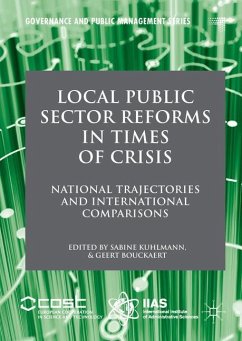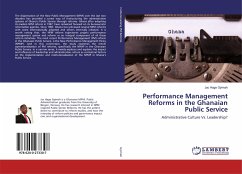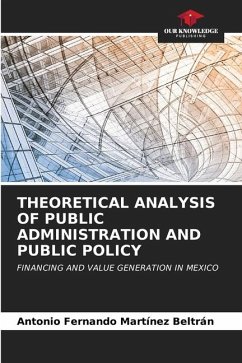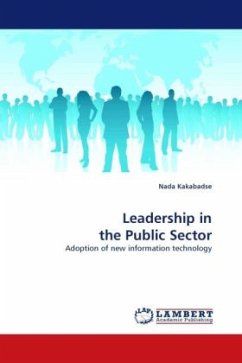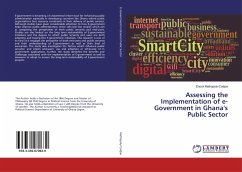
Assessing the Implementation of e-Government in Ghana's Public Sector
Versandkostenfrei!
Versandfertig in 6-10 Tagen
46,99 €
inkl. MwSt.

PAYBACK Punkte
23 °P sammeln!
E-government is becoming a fundamental reform tool for enhancing public administration especially in developing countries like Ghana where public organizations face resource constraints in their delivery of public services. Although studies have given considerable attention to how E-government helps improve public administration, there still exist few studies which aim at comparing the perspectives of both public servants and end-users. Studies are also limited on the long term sustainability of E-government initiatives and the degree to which public servants and users are both adopting and bu...
E-government is becoming a fundamental reform tool for enhancing public administration especially in developing countries like Ghana where public organizations face resource constraints in their delivery of public services. Although studies have given considerable attention to how E-government helps improve public administration, there still exist few studies which aim at comparing the perspectives of both public servants and end-users. Studies are also limited on the long term sustainability of E-government initiatives and the degree to which public servants and users are both adopting and buying-into E-government initiatives. This research is one of its kind as it engages the perceptive of both end-users and public servants and their understanding of E-government as well as their level of awareness. The study also investigates the factors which influence public servants' and citizen end-users' use and adoption or otherwise of E-government applications. Further, the study identifies the benefits and challenges associated with the implementation of E-government as well as measures to adopt to ensure the long-term sustainability of E-government projects.



